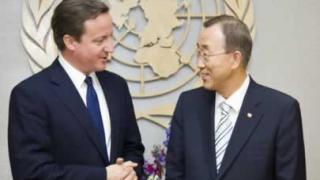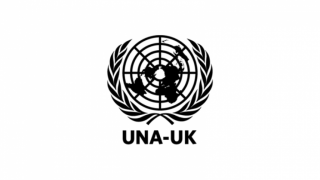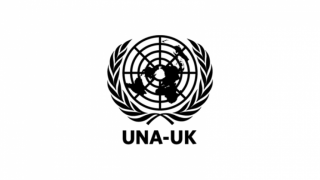
UK Prime Minister David Cameron has accepted an invitation by UN Secretary-General Ban Ki-moon to chair a panel tasked with exploring what should follow the UN Millennium Development Goals (MDGs) in 2015 – the target date for achieving the Goals.
The MDGs have been at the heart of international development efforts since their adoption by world leaders in 2000. Aimed at tackling issues from hunger to infant mortality to deforestation, they have served as a blueprint for governments, aid agencies and NGOs, and have helped to improve the lives of millions of people.
But progress has been uneven within and between countries, and many of the MDG targets are likely to be missed in several countries.
The UK government has reportedly indicated that it wants to ‘refocus the goals’ by strengthening the emphasis on economic growth. It has also been suggested that the UK will seek to introduce a stronger element of aid conditionality and a bigger role for the private sector in development programmes.
A more hard-headed approach is likely to resonate with recent development debates. At the international level, these have focussed on aid effectiveness and a renewed emphasis on using aid to promote human rights, democracy and good governance. Within the UK, the government has come under pressure for protecting the UK’s aid budget from spending cuts during the economic downturn, and for committing to increase overseas aid to 0.7% of GDP – the long-standing international target – by 2013.
UNA-UK welcomes Mr Cameron's appointment, which represents an historic opportunity for the UK to shape the global development agenda. With less than three years remaining to achieve the MDGs, it is vital that the international community starts developing a post-MDG framework now. Sir Jeremy Greenstock, UNA-UK’s Chairman, had made representations to this effect to Andrew Mitchell, Secretary of State for International Development, urging the UK to take the lead in initiating a vigorous debate, drawing on lessons learned from the past 12 years.
While the MDGs have delivered tangible gains, they have also been criticised for prioritising quantitative over qualitative measures; for being too narrow; and for not adequately addressing the needs of vulnerable groups, such as persons with disabilities, the elderly or the rural poor.
UNA-UK believes that the UK should use this opportunity to contribute to a more holistic approach to development. Whilst economic growth must be part of the mix, progress should be measured in terms of human rights, sustainability and security as well. In particular, the importance of educating women and girls – which Andrew Mitchell has said “reaps huge rewards” in developmental and economic progress – should not be forgotten.
The new UN panel should also ensure that it takes into account other international commitments, such as those made on climate change, debt relief and trade, and the outcomes of the forthcoming discussions on a set of ‘sustainable development goals’, due to be held at the Rio + 20 summit this June.






